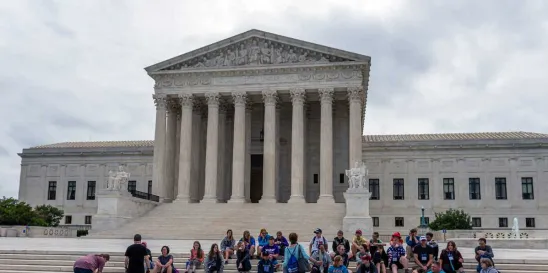On 3 October 2023, the Court heard argument in Consumer Financial Protection Bureau v. Community Financial Services Association, Ltd., No. 22-448. In the matter, the Consumer Financial Protection Bureau (CFPB) challenges the decision of the Fifth Circuit Court of Appeals striking down the CFPB’s funding structure as contravening the appropriations clause of the US Constitution.
Under the Dodd-Frank Act, the CFPB receives funding through an annual request, subject to a statutorily-set cap, which request is made by the director of the CFPB to the Federal Reserve. The funds come from fees that the Federal Reserve charges to its member banks for transactions it processes. The Fifth Circuit had held that the funding structure created by Congress under the Dodd-Frank Act violated the separation of powers doctrine by placing control over the power of purse in the hands of the executive branch rather than the legislative branch. In briefing and at argument, the CFPB posited that neither the text of the appropriations clause, nor its historical application, supports the Fifth Circuit’s holding. As to the first point, the CFPB argued that the founders knew how to impose a limit on Congress’s appropriations power when they limited Congress’s authority with respect to funding the military. Yet, nothing else in the text of the Constitution limits Congress’s authority to appropriate monies for a statutorily-described purpose. Thus, the CFPB argued, under the rules of constitutional interpretation, the Court must conclude that Congress was not constrained in creating the CFPB’s funding structure.
The CFPB further argued that history supports its interpretation of the Constitution. Congress has chosen to fund agencies through an assessment of fees since the founding era when it funded the Customs Service, for example, through such a structure. The CFPB continued that through history, Congress has created numerous other agencies with a similar funding structure, including the Postal Service, the National Mint, the Patent Office, Federal Reserve, the Federal Deposit Insurance Corporation, and the Office of the Comptroller of Currency. The CFPB concluded that, not surprisingly, no other court beside the Fifth Circuit has ever struck down a statute appropriating funds in this manner.
The conservative members of the Court pressed the CFPB on whether the Constitution imposes an upper limit on Congress’s authority to fund agencies in this manner, questioning whether Congress could give the executive branch authority to spend the entire federal budget as it saw fit. The liberal members of the Court, however, stated that the Court need not reach that question and need not worry about setting such a precedent, because Congress had capped the amount the CFPB could receive. They also pressed respondent on whether the text of the appropriations clause supported its violation of the separation of powers doctrine. Additionally, Justice Jackson sought clarification as to which entity bore the burden of proof, suggesting that she believes the burden lies with respondent rather than with the CFPB.
Members of the financial services industry have expressed a wide range of views on the case. On the one hand, many support subjecting the CFPB to increased accountability through the appropriations process. Others have expressed concern that if the Fifth Circuit’s decision is upheld, the potential invalidation of CFPB rules and other actions it has taken since its inception could cause significant disruption to the industry. The Court is expected to issue its decision by the end of its term in June 2024.





 />i
/>i

